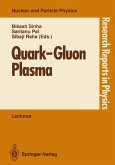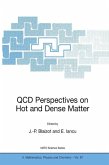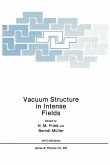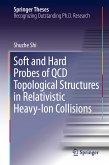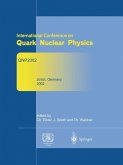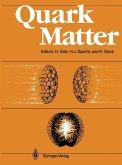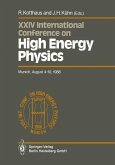Dieser Download kann aus rechtlichen Gründen nur mit Rechnungsadresse in A, B, BG, CY, CZ, D, DK, EW, E, FIN, F, GR, HR, H, IRL, I, LT, L, LR, M, NL, PL, P, R, S, SLO, SK ausgeliefert werden.
"Clearly this book is to be recommended as it fills a gap between well-known textbook material and the research literature and is thus perfectly suited for postgraduate students who wish to enter this field, for lecturers looking for advanced material for their courses and for scientists in search of a modern source of reference on these topics." (Physicalia 25/2, 2003)
"At 40 to 50 pages per contributor the book is a pleasant mix of up-to-date material and a depth at times approaching that of a textbook. [...] In my opinion, the volume has a place on the shelves of any practitioner in this field." (A.W. Schreiber, The Physicist 39/6, 2002)
"This book constitutes the Proceedings of the 40th Schladming Winter School (2001) on Dense Matter. The set of theoretician and experimentalist lectures deals with the expected new phase of strongly interacting matter called the Quark-Gluon Plasma (QGP). In this book the reader will find a completeand detailed view of the theoretical development and of the recent experimental results in heavy ion collisions. ... Clearly, this book is to be recommended ... ." (Laurent Favart, Physicalia, Vol. 25 (2), 2003)
"A timely compendium to an area of current interest, namely the physics of the strong nuclear interactions under extreme conditions. ... At 40 to 50 pages per contributor the book is a pleasant mix of up-to-date material and a depth at times approaching that of a textbook. ... ample references are provided for those wanting to delve further. In my opinion, the volume has a place on the shelves of any practitioner in this field." (A W Schreiber, The Physicist, Vol. 39 (6), 2002)
"This set of lectures deals with the transition from nuclear matter to quark matter. The reader will learn not only about the theory of quark-gluon plasmas but also how they are obtained ... . The book fills a gap between well-known textbook material and the research literature and is thusperfectly suited for postgraduate students who wish to enter this field, for lecturers looking for advanced material for their courses and for scientists in search of a modern source of reference ... ." (www.wissenschaft.online.de, January, 2003)



